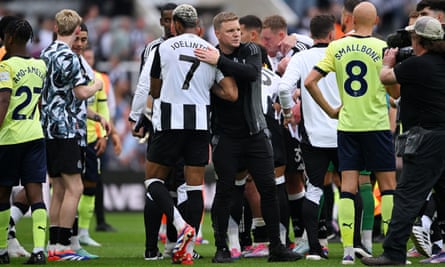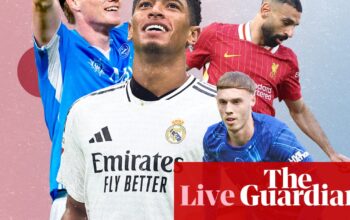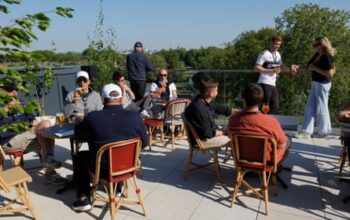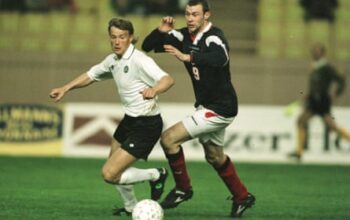“I wish,” the Newcastle fan said, “that my club should have the richest owners in the world.” The monkey’s paw twitched. When Saudi Arabia’s Public Investment Fund completed its takeover of Newcastle United, in October 2021, that fan reacted with excitement; it seemed their wish had been delivered. Why should this fan fear the consequences?
The image of the monkey’s paw derives from a 1902 short story by WW Jacobs, the motto of which is to be careful what you wish for – or at least that if you are granted three wishes, to be extremely precise in making them. For Newcastle, it may still be fine. A couple of astute signings before the window closes could be enough to get them back into Europe and the revenues that brings may be enough for slow and steady growth towards super-club status that is compliant with the profitability and sustainability rules (PSR).
If the elephant of human rights can be left aside for a moment – something a lot of vocal Newcastle fans seem able to do very easily – this is a huge step up from the Mike Ashley era of drifting contempt.
But this is not the future many imagined when the Saudi takeover happened and their fans – clusters of them on social media at least – sang about being the richest club in the world, having Cristiano Ronaldo cleaning the boots and Lionel Messi selling the pies. Even the more realistic supporters probably didn’t imagine that in the third summer after the takeover they would be haggling over the signing of a centre-back from Crystal Palace, hugely gifted as Marc Guéhi is.
Another plausible reality now presents itself. Having the richest owners in the world does not necessarily mean having the biggest budget in the world and it brings pressures and discontents of its own. As Manchester City have found, it doesn’t take much to go from being regarded as long-suffering and deserving of better, to being resented as nouveaux riches tools of a questionable state. At least City have the league titles and the Champions League to show for it.
Newcastle have managed to hang on to Bruno Guimarães and Alexander Isak despite suggestions one might have to be sold to fund further transfers, but that has come at the cost of two promising young talents, Elliot Anderson and Yankuba Minteh, going to Nottingham Forest and Brighton respectively. Concerns persist that, thwarted by PSR from making the sort of eye-catching signings they would like, Newcastle are no longer the priority for the PIF, which has plenty of other sporting projects to focus on, including the Saudi Pro League, the 2034 World Cup, LIV Golf and various ventures in boxing, tennis, cricket, motorsport and esports.
The perception was that qualifying for the Champions League in the first full season of Saudi ownership placed Newcastle ahead of schedule. A tough draw was a mixed blessing: on the one hand there was glamour but on the other it made progress exceptionally hard.
Newcastle will always have the memories of the night when they welcomed Paris Saint-Germain to St James’ Park – Kylian Mbappé, Gianluigi Donnarumma, Ousmane Dembélé et al – and beat them 4-1, but the European adventures perhaps took the edge off league form and the result was a seventh-placed finish.
There’s no shame in that: other than the previous season, it was their best finish since 2011-12. But expectations have been raised. One season’s exceptional achievement rapidly becomes the following season’s par.
For the most part, fans last season were understanding. There was a spell over Christmas as Newcastle, hammered by injuries, lost six out of seven in the league, when there was some grumbling, notably during the defeat at Bournemouth. Patience might have been severely tested had they lost in the FA Cup at Sunderland but that game was won so easily that, having appeared a free hit for the Championship side, defeat was a major factor in the departure of Michael Beale.

Manchester United’s surprise victory in the FA Cup final cost Newcastle a place in the Europa Conference League which, while removing them from a competition they would have been among the favourites to win – and when a club hasn’t won anything since the Fairs Cup in 1969, the prospect of raising the trophy in Wroclaw was perhaps more appealing to Newcastle than for many – may not be a bad thing if the goal is to return to the Champions League.
after newsletter promotion
Whether Eddie Howe needs to achieve that to keep his job is, as with so much of the thinking of Newcastle’s directors, unclear. Dan Ashworth’s departure for Old Trafford and Amanda Staveley’s decision to sell her stake have removed two of Howe’s allies on the board.
Peace appears to have broken out again, but the appointment of the performance director, James Bunce, by the new sporting director, Paul Mitchell, at the beginning of July led to much strained talk about “boundaries”. Howe seems relaxed but, with Lee Carsley appointed only as interim head coach of England, the national team job offers a potential route out of Newcastle if he did feel frustrated by transfer policy or perceived encroachment on his autonomy.
But there is tension elsewhere, with Kieran Trippier seeking a move after losing the captaincy to Guimarães and, seemingly, his place to Tino Livramento. That complicates the picture for the next week, with a right-back as well as a centre-back perhaps now needed. If agreement cannot be reached on Guéhi, Liverpool’s Joe Gomez, Chelsea’s Axel Disasi and Trevoh Chalobah or Bayer Leverkusen’s Edmond Tapsoba represent plausible alternatives. Sandro Tonali will return from his gambling ban next week.
Injury permitting, Newcastle have a squad that should challenge for Champions League qualification; the problem is that eight sides can say the same and there are four or possibly five slots.
Would Howe be under pressure if Newcastle, say, lay sixth at the end of November? The truth is that nobody knows how the PIF would act or even really how much it cares.
As Howe returns to Bournemouth on Sunday, the mood is better than it was on Newcastle’s last visit but, in a world of sensible signings and slow growth, the danger is stagnation and the monkey’s paw warning that they might have sold their soul to become an upper-mid-table club.
Source: theguardian.com


